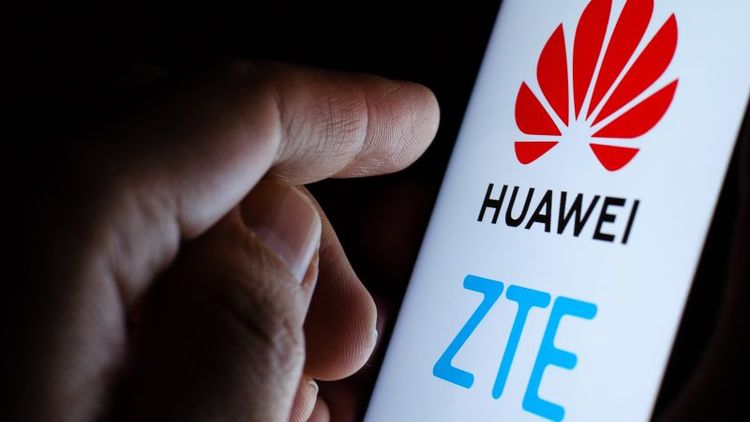EU Commission bans Huawei, ZTE, urges countries to do the same

On Thursday, EU Commissioner Thierry Breton encouraged member nations to utilize the powers of the 5G Toolbox to limit or bar vendors that pose significant risks. He also stated that the Commission would be taking measures to remove Huawei and ZTE from its internal networks.

The latest update on enforcing the guidelines for 5G security toolbox, which was agreed upon by all member states last Thursday, indicated that only 10 out of the EU27's member countries have implemented the measures set forth by the 5G Toolkit. These actions include imposing limitations on high-risk vendors and even outright exclusion of said vendors from 5G networks.
During the press conference, EU Commissioner Thierry Breton expressed his concern that the current speed of the process presents a significant risk to security. He pointed out that there is a dependency on the EU, which could potentially lead to serious vulnerabilities in the Union's overall security.
Breton stated that we are requesting our connectivity services and providers to not include Huawei and ZTE in their products. This applies to any current and future agreements. The directive is applicable to all EU Commission buildings situated in Europe. We are urging all other EU institutions to adhere to our policy.
In plain English, the phrase 'high-risk vendor' commonly refers to ICT equipment suppliers that could potentially collaborate with an unfriendly nation. The West became more cautious about Huawei and other Chinese businesses due to concerns that China's security legislation would compel them to share sensitive information with Beijing.
However, there are some EU nations that have not conformed to the rest. In particular, Germany has been hesitant to implement measures that could put its trade connections with China at risk.
The prohibition from the Commission signifies that not only will the EU governing body abstain from employing such risky merchants, but any establishment that avails their amenities must also abstain from partnering with Chinese suppliers.

It is still uncertain how deeply this will impact the entire supply chain. Breton also desires other organizations to do the same, similar to how the Commission prohibited TikTok usage on work mobile devices.
According to Breton, it is crucial to prioritize the safety of 5G networks. These networks are significant infrastructures on their own, as well as being vital for other industries like energy, transportation, healthcare, and finance.
The EU agreed on a set of rules for ensuring the safety of 5G networks in January 2020.
As a part of the 5G toolkit, EU member nations must pinpoint vendors that pose significant risks and have the ability to obstruct or limit their involvement in critical aspects of 5G networks across the continent.
This grouping is due to the fact that certain overseas telecommunications companies are subject to laws that are very invasive and relate to national intelligence and data security. Among these companies are Chinese brands such as Huawei and ZTE.
The Trump administration started a bigger economic battle to damage China's expanding technology industry, and this included taking measures against Huawei.
The EU is looking to reduce its reliance on other countries and maintain control over its technological advancements by implementing 5G networks. This is especially important for the Internet of Things and overall technological progress. The EU is striving for economic security and technological autonomy.
The follow-up report regarding the application of the 5G security toolbox, which was released at the same event, is an updated version of the initial status report from July 2020.
The findings show that even though 24 countries in the EU are either currently installing or getting ready to enforce laws relating to the EU Toolbox, there are some crucial aspects that still have not been put in place.
The report mentioned that there is a significant danger of turning into consistently reliant on suppliers that present high risks within the local market. This issue could potentially cause significant harmful consequences to the safety of users, businesses, and the EU's critical infrastructure. As a result, the report recommended that member states take immediate action.
The report mentioned that it is important to focus on technical implementation and put effort into meeting essential security standards. This can be achieved by establishing strong procurement conditions to meet the minimum security requirements.
If Member States fail to take action, the Commission will consider other measures to strengthen the internal market's resilience. This may involve investigating potential legislative options in collaboration with the NIS Cooperation Group. This was the conclusion of the report.
In the upcoming week, the European Commission is set to reveal an economic security plan that could involve additional measures on trade policies in relation to Chinese corporations.
[Revised by Luca Bertuzzi/Alice Taylor]

























